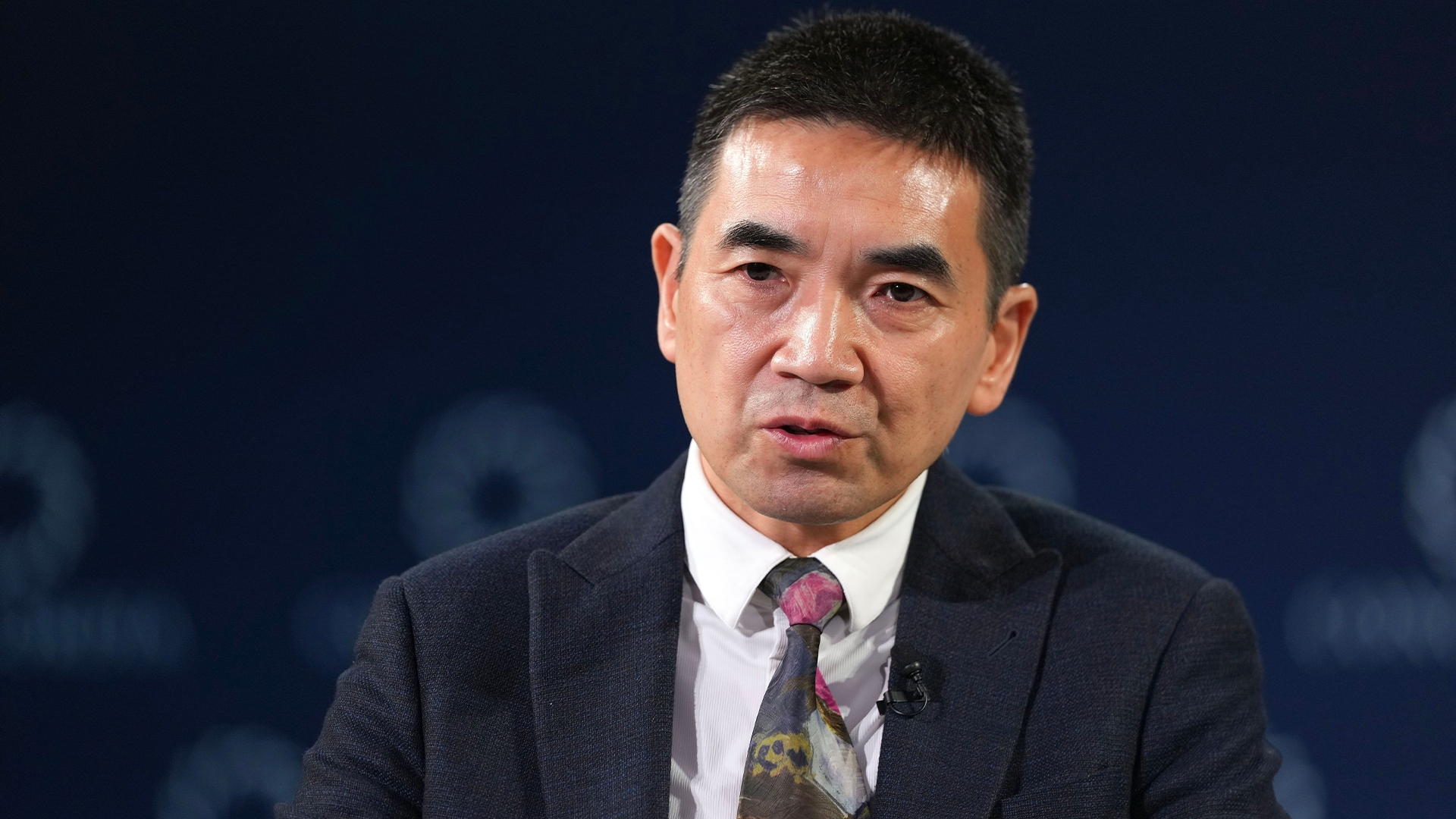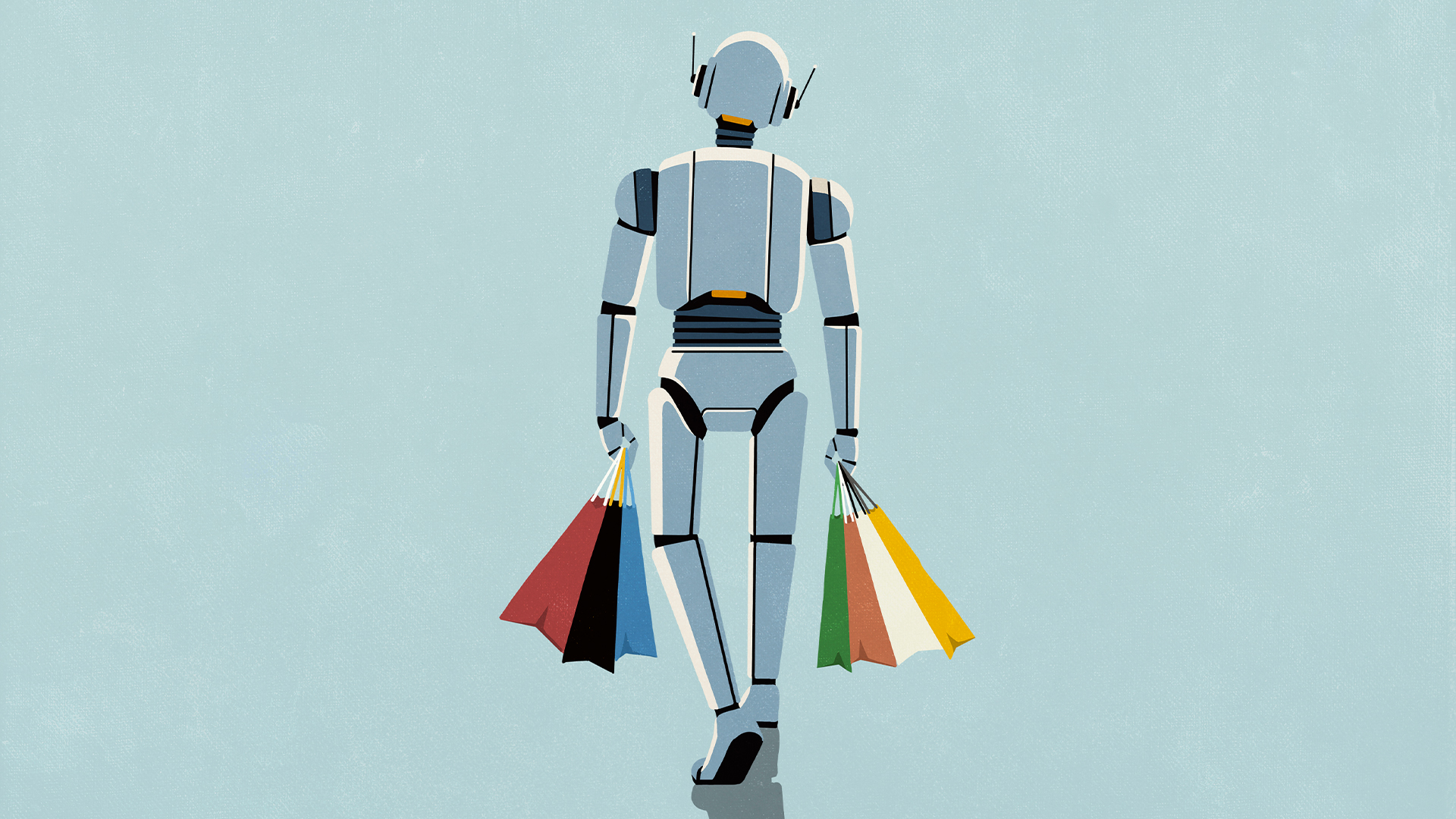Zoom CEO Eric Yuan thinks AI will pave the way for a three-day week – and he’s not the only big tech exec excited about reduced working hours
Yuan joins Nvidia CEO Jensen Huang and Bill Gates in touting the potential for AI to unlock reduced working hours


Sign up today and you will receive a free copy of our Future Focus 2025 report - the leading guidance on AI, cybersecurity and other IT challenges as per 700+ senior executives
You are now subscribed
Your newsletter sign-up was successful
With enterprises worldwide ramping up AI adoption rates, Zoom CEO Eric Yuan thinks the technology will ultimately pave the way for millions of workers to shift to reduced working hours.
In a recent interview with the New York Times, Yuan said the use of AI will streamline workflows, essentially freeing up staff from carrying out mundane tasks.
“I feel like if AI can make all of our lives better, why do we need to work for five days a week?” Yuan told the publication. “Every company will support three days, four days a week.”
“I think this ultimately frees up everyone’s time,” he added.
Yuan’s comments mark the latest in a string of predictions by big tech execs on the potential for AI to deliver a three or four-day working week.
Yuan’s comments mark the latest in a string of predictions by big tech execs on the potential for AI to deliver a three or four-day working week.
In an August 2023 appearance on Trevor Noah’s What Now? podcast, Bill Gates hinted that AI-related efficiency gains could “eventually get a society where you only have to work three days a week”.
Sign up today and you will receive a free copy of our Future Focus 2025 report - the leading guidance on AI, cybersecurity and other IT challenges as per 700+ senior executives
More recently, Nvidia CEO Jensen Huang also touted the potential for a four-day week through AI in an interview with Fox Business.
“I fully expect GDP to grow. I expect productivity to increase. I actually expect us to have more things to do,” he told host Liz Claman.
“I’m hopeful for that day too, so that we have four-day work weeks… so that we could spend more time on the weekends with family and get some reading done, and do some travelling. Nothing is better than that.”
A four-day week is the holy grail of work-life balance
Calls for a four-day week have been gathering momentum in recent years, with a host of pilot schemes showing the practice offers marked benefits for workers.
With AI adoption rates continuing at pace globally, similar research has suggested the technology could help to reduce working hours. Analysis from Autonomy last year, for example, claimed the use of AI tools could cut the equivalent of a whole working day for over 8 million workers across the UK.
The study also found AI could unlock an average 10% reduction in working hours for an additional 27.9 million UK employees by the end of the decade.
Autonomy noted this 10% reduction would equate to working hours being cut for around 88% of the current UK workforce.
A catch-22 for workers
While comments from Yuan and industry counterparts will likely be welcomed by workers, the situation isn’t quite so positive. Indeed, the Zoom CEO noted that while those currently in work may benefit from the technology, long-term labor market shifts as a result of AI adoption could impact entry-level workers.
“Whenever there’s a technology paradigm shift, some job opportunities are gone, but it will create some new opportunities,” he said. “For some jobs, like entry-level engineers, we can use AI to write code.”
“However, you still need to manage that code. You also create a lot of digital agents, and you need someone to manage those agents.”
Notably, Huang’s positive outlook on future working setups was tempered by the fact he believes AI will actually make workers busier in the future despite the so-called efficiency gains unlocked by the technology.
Yuan isn’t the first big tech executive to raise concerns about the impact of AI on entry-level workers in recent months.
Earlier this year, Anthropic CEO Dario Amodei warned that the technology would eliminate up to half of all entry-level, white-collar roles in years to come.
A study from Stanford University in August suggested AI is already starting to have a negative impact, with those entering the workforce facing an increasingly challenging jobs market.
Make sure to follow ITPro on Google News to keep tabs on all our latest news, analysis, and reviews.
MORE FROM ITPRO
- Workers are demanding four-day weeks in tech
- The four-day week sounds great – but we need the private sector on board
- Will Britain have a four-day week in five years?

Ross Kelly is ITPro's News & Analysis Editor, responsible for leading the brand's news output and in-depth reporting on the latest stories from across the business technology landscape. Ross was previously a Staff Writer, during which time he developed a keen interest in cyber security, business leadership, and emerging technologies.
He graduated from Edinburgh Napier University in 2016 with a BA (Hons) in Journalism, and joined ITPro in 2022 after four years working in technology conference research.
For news pitches, you can contact Ross at ross.kelly@futurenet.com, or on Twitter and LinkedIn.
-
 Channel your innovation: Why IT partnerships are essential for the future of retail
Channel your innovation: Why IT partnerships are essential for the future of retailIndustry Insights A shared understanding and commitment to overcoming hurdles is key
-
 Pulsant unveils high-density data center in Milton Keynes
Pulsant unveils high-density data center in Milton KeynesNews The company is touting ultra-low latency, international connectivity, and UK sovereign compute power to tempt customers out of London
-
 Why Anthropic sent software stocks into freefall
Why Anthropic sent software stocks into freefallNews Anthropic's sector-specific plugins for Claude Cowork have investors worried about disruption to software and services companies
-
 B2B Tech Future Focus - 2026
B2B Tech Future Focus - 2026Whitepaper Advice, insight, and trends for modern B2B IT leaders
-
 What the UK's new Centre for AI Measurement means for the future of the industry
What the UK's new Centre for AI Measurement means for the future of the industryNews The project, led by the National Physical Laboratory, aims to accelerate the development of secure, transparent, and trustworthy AI technologies
-
 Half of agentic AI projects are still stuck at the pilot stage – but that’s not stopping enterprises from ramping up investment
Half of agentic AI projects are still stuck at the pilot stage – but that’s not stopping enterprises from ramping up investmentNews Organizations are stymied by issues with security, privacy, and compliance, as well as the technical challenges of managing agents at scale
-
 What Anthropic's constitution changes mean for the future of Claude
What Anthropic's constitution changes mean for the future of ClaudeNews The developer debates AI consciousness while trying to make Claude chatbot behave better
-
 Satya Nadella says a 'telltale sign' of an AI bubble is if it only benefits tech companies – but the technology is now having a huge impact in a range of industries
Satya Nadella says a 'telltale sign' of an AI bubble is if it only benefits tech companies – but the technology is now having a huge impact in a range of industriesNews Microsoft CEO Satya Nadella appears confident that the AI market isn’t in the midst of a bubble, but warned widespread adoption outside of the technology industry will be key to calming concerns.
-
 Workers are wasting half a day each week fixing AI ‘workslop’
Workers are wasting half a day each week fixing AI ‘workslop’News Better staff training and understanding of the technology is needed to cut down on AI workslop
-
 Retailers are turning to AI to streamline supply chains and customer experience – and open source options are proving highly popular
Retailers are turning to AI to streamline supply chains and customer experience – and open source options are proving highly popularNews Companies are moving AI projects from pilot to production across the board, with a focus on open-source models and software, as well as agentic and physical AI